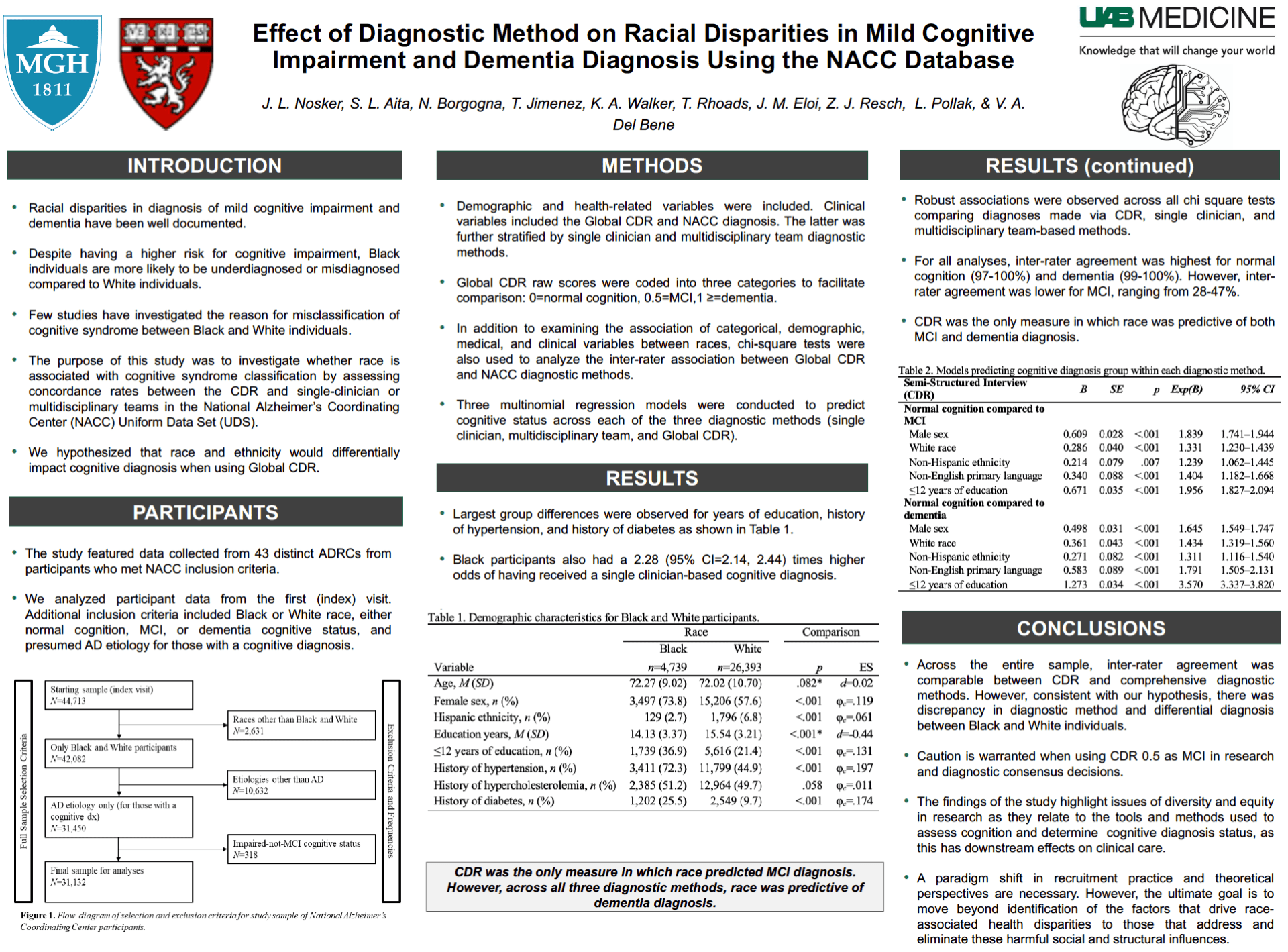Scientific Abstract
Background: Studies have shown that Black individuals are at higher risk for MCI and dementia but are more likely to be underdiagnosed or misdiagnosed. Although multiple contributory factors have been identified in relation to neurocognitive diagnostic disparities, few studies have investigated the effect of diagnostic method. The current study examined the agreement of cognitive classification made via semi-structured interview and neuropsychological assessment.
Methods: Participants assigned normal cognitive status or cognitive impairment with presumed Alzheimer’s etiology were included. Baseline visit data in the National Alzheimer’s Coordinating Center dataset was collected to compare correspondence of cognitive classification via semi-structured interview (Clinical Dementia Rating; CDR) with formal NACC diagnostic determination (single clinician and formal consensus). Inter-rater agreement was evaluated using chi-squared tests, and respective analyses were stratified for race, ethnicity, and education.
Results: The sample size included 4,739 Black and 26,393 White participants. Inter-rater analyses between CDR versus single-clinician and formal consensus diagnostic methods showed strong (all φc>.70) consistency in cognitive diagnoses overall. The percentage of agreement between diagnostic methods was nearly 100% for those categorized as cognitively normal or with dementia. However, the agreement for MCI was considerably lower (28-74%) and revealed a disparity in diagnostic method. Specifically, White individuals diagnosed with MCI via CDR were more likely to be labeled as having dementia regardless of diagnostic method. Black individuals diagnosed with MCI via CDR were equally likely to be diagnosed as cognitively normal or with dementia via the formal consensus method.
Conclusions: Diagnostic methods had high agreement for groups labeled with normal cognition and dementia. Agreement was consistently lower for the group labeled with MCI, with Black individuals having greater variability in diagnostic differentials. These findings highlight issues of diversity and equity as they relate to the tools and methods used to assess cognition and determine diagnosis.
Search posters

